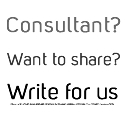Top 5 things you should do when you are a consultant off the clock and on the bench
By James. October 29th, 2010. Posted in Off assignment 3 Comments »
In the working life of any consultant there will be times between projects when you will be “off the clock” and “on the bench” or in plain English: when you will not be working on paid client work. Given that the number one objective of any consultant is to be fully utilised (working on paid project work) this, for some, can be a scary prospect. Especially if there’s no sign of any new project work coming your way any time soon.
In an effort to help you make the most of your bench time, we’ve pulled together our top five list of things you should do as soon as you are off the clock and staring over the cliff edge that is your declining ultilisation percentage for the year:
1) Update your CV
No, we don’t mean start looking for a new job. We mean your internal CV. Most consulting firms will have a CV for each consultant that they use to search for people with particular skills internally, or to help sell you and a project when writing proposals for external consumption. Chances are that if you’ve just finished a project yours is out of date. Use the down time you now have to update it, add your most recent project and remove something older that isn’t so relevant anymore.
2) Write some Thought leadership
In a World where you are selling your insight and expertise there’s no better way to promote your skills than to write about them. Write a case study about your last project, explain why you did what you did and how it turned out. Obviously, be careful when it comes to naming your clients, or writing about sensitive information, but even an anonymous case study is better than none at all. Then for bonus points with your line manager try to get it published in an industry magazine, or in a newspaper, online, etc.
3) Do some training
Down time between consulting projects is a great time to up skill. Whether you sign up to an internal training course, take advantage of some form of online training, or even if you just read a book on a topic that interests you, expanding your skill set is an investment worth making.
4) Take some holiday
Consultants will often find themselves, if lucky, on projects that can last months or even years at a time. While that’s great for your utilisation target for the year it’s not so great for leaving time for holidays. With the exception of the Christmas / New Year holiday season it can often be quite hard to convince your client or even project manager to let you have time off. If you are between projects and have holiday to take, it’s a good time to take it. You’ll hopefully even be able to take advantage of last minute deals. If you are very careful with your timing, holiday can be used tactically to ensure your utilisation percentage for the year doesn’t get affected by bench time. Holidays are taken into account when calculating your utilisation, so if you have a week or two between projects, and take them off as holiday your number will not drop while you’re away, whereas if you don’t take holiday your number will drop for each day you’re on the bench.
5) Write for Consultive Magazine
(OK, so we’re a little biased about this last one…) As well as considering writing some thought leadership from a “what we delivered” point of view, consider how you performed as a consultant, and share your learning with us. Share the stories you have about how you used your consulting tool set, what worked with your clients and what didn’t. We’re happy for you to write anonymously for us if you’re worried about client / corporate confidentiality, and we’re equally happy to give you full credit for any articles that you write for us if you’re not.
So there you have it, our top five tips for what to do as a consultant when you’re off the clock and on the bench. What are the first things you try to do when you’re fresh off a consulting assignment? How do you use your down time between projects? We’d love to hear your strategies in the comments.






Comments (3)
29th October 2010 at 10:07 am
[…] This post was mentioned on Twitter by Stephen Humphreys, Consultive Magazine. Consultive Magazine said: Our top 5 things to do when you are off the clock and on the bench – http://bit.ly/c5Uynq #consulting […]
29th October 2010 at 12:37 pm
James – most of this is based on an assumption that consultants are measured solely (or primarily – depends who you believe) on utilisation. This may be the reality in some, typically larger, firms – but it’s not the only view of the world.
There is a world where consultants are measured on contribution in terms of delivering quality, delighting clients, etc. In this world, assessment goals are set around delivery objectives and careers are actively managed in terms of the consultant’s capability rather than the organisation’s ability to sell them.
Of course, consulting is an hours business and to be profitable, enough hours need to be sold. (1) and (2) are still equally as valid in this world. Consultants’ capabilities need to marketable and they need to be sold on assignment.
Taking training (3) is also a good idea, although in smaller firms training will typically be setup with a longer term view than just having courses available for “sign-up” whenever a consultant is benched.
Taking holiday (4) is only relevant where the only measure of success is utilisation.
31st October 2010 at 10:52 pm
Hi David,
Thanks for taking the time to comment.
I’d agree, these tips do assume that consultants are measured solely or primarily on utilisation, and on reflection this is somewhat of a generalisation.
You’re right, of course, that many smaller firms and some of the larger firms also use other measures to track how productive and successful a consultant has been in any given year.
With that in mind, I’d agree with your assessment; tips (1) and (2) and in a different way (3) are all valid things to make sure you do, and while (4) may be less relevant in less utilisation driven organisations I’d like to think that (5) is still just as valid across the board 😉
Maybe you’d like to write about your experiences of how your productivity has been measured in some of the smaller and bigger firms that you’ve worked for and compare and contrast?
Thanks again for commenting.